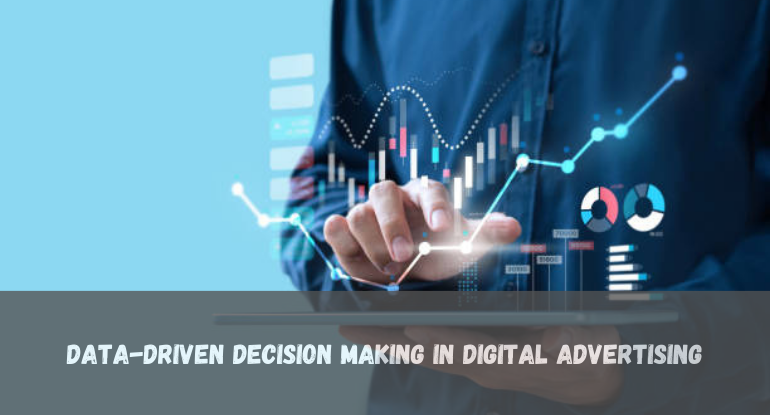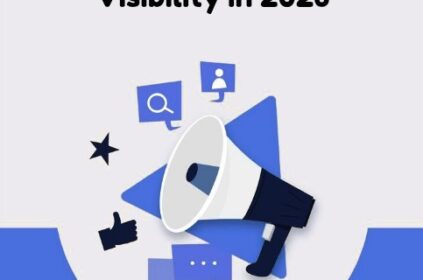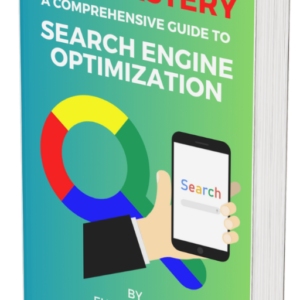As technology and the digital world take the lead and where every click, scroll, and tap generates an avalanche of data, the power to harness this wealth of information is a game-changer.
Welcome to the world of data-driven decision-making in digital advertising, a field where insights gleaned from numbers shape the very core of marketing strategies.
It’s not just about creating catchy ads or eye-catching visuals anymore; it’s about decoding the language of data to unlock the door to unparalleled success in the competitive arena of online advertising.
Join me as we delve into this fascinating intersection of data, strategy, and the ever-evolving realm of digital advertising.
The Role of Data in Digital Advertising
Data stands as the bedrock in the intricate web of modern digital advertising, empowering advertisers with a profound understanding of their audience.
It isn’t just a tool; it’s the key that unlocks a world of granular insights, unfurling the intricate tapestry of preferences, behaviors, and patterns. These revelations, gleaned from the vast expanse of data, form the compass guiding precise targeting and messaging strategies.
Data isn’t just numbers; it’s a revelation—a lens through which advertisers gain unparalleled insights into the psyche of their audience. It’s the decoder that unravels what resonates deeply and what sparks the transformative journey from a mere audience member to a conversion catalyst.
Within this digital arena, data morphs into a treasure trove—a reservoir of invaluable insights that fuels the engines of informed decision-making.
It isn’t merely about understanding; it’s about discerning the nuances that make an audience tick, paving the way for strategies that don’t just reach but resonate profoundly.
It’s about crafting messages that aren’t mere echoes but resonate as harmonic chords, striking a chord with the audience’s deepest motivations and desires.
Harnessing Data for Strategic Insights

In utilizing data for strategic insights in digital advertising, the following points should be considered for effective delivery:
#1. Personalization Prowess: Data isn’t just about numbers; it’s the cornerstone of personalized marketing. It delves deep into the intricacies of audience segments, allowing tailored ad content that speaks directly to the hearts and minds of specific groups.
This level of customization transcends generic messaging, forging connections that resonate on a personal level.
#2. Refined Targeting: Beyond demographics, data refines the art of targeting by dissecting behaviors, interests, and preferences.
It’s not just about knowing who your audience is; it’s about understanding what makes them tick, enabling campaigns to meet them exactly where they are in their buyer’s journey.
#3. Real-time Optimization: Detailed data analytics provide a live pulse on campaign performance. It’s like having a digital dashboard that constantly updates, revealing which strategies hit the mark and which fall short.
This real-time feedback loop isn’t just informative; it’s transformative, allowing for on-the-fly adjustments that maximize impact.
#4. Adaptability Arsenal: The predictive prowess of data doesn’t stop at mere analysis; it extends to forecasting potential outcomes. By leveraging historical data, predictive modeling becomes the crystal ball that aids in not just optimizing ad spend but in foreseeing trends and shifts in consumer behavior.
This foresight equips marketers with the agility to adapt strategies proactively, rather than reactively.
#5. Iterative Innovation: Armed with insights from data, innovation takes on a strategic form. It’s not just about the next big idea; it’s about iterating based on empirical evidence.
Data steers the ship of innovation, allowing for calculated risks and experiments grounded in a foundation of information, rather than blind leaps of faith.
#6. ROI Optimization: Ultimately, it all converges on return on investment. Data isn’t just about gathering information; it’s about transforming that information into actionable insights that maximize every dollar spent.
It’s about allocating resources where they count the most, ensuring that each campaign is a step closer to achieving not just engagement, but tangible business outcomes.
Implementing a Data-Driven Approach
#1. Holistic Data Gathering: Lay the groundwork for a robust data collection system. This entails more than mere data collection; it’s about knitting together a robust infrastructure that seamlessly amalgamates insights from diverse sources.
From mining website analytics to parsing social media nuances and integrating customer relationship management (CRM) systems, the goal is to paint a comprehensive picture of your audience.
#2. Adopting Cutting-Edge Tech: Embrace the vanguard of analytics tools and technologies. The arsenal includes AI-powered analytics that unravel complex data webs, machine learning algorithms that decipher patterns within vast datasets, and attribution modeling that dissects the journey of audience interactions.
These advanced tools serve as the gateway to transforming raw data into actionable insights, propelling campaigns towards precision and efficacy.
#3. Culture of Constant Refinement: Cultivate an ethos of perpetual enhancement. Here, it’s not just about occasional tests; it’s about a perpetual cycle of testing and optimization.
A/B tests on ad elements become routine, refining targeting strategies based on real-time data feedback becomes second nature, and each iteration, no matter how minute, is a stepping stone toward refining campaign performance.
#4. Agility and Adaptability: Embrace agility as a guiding principle. The landscape of digital advertising is dynamic, and the ability to pivot swiftly based on insights is invaluable.
Data isn’t just a snapshot; it’s a compass guiding the direction of campaigns. It’s the catalyst for swift, informed decisions that keep strategies aligned with the ever-evolving nuances of audience behavior.
#5. Repetitive Evolution: Recognize that implementation isn’t a one-time event; it’s an evolutionary process. Each stride forward isn’t just progress; it’s a learning opportunity.
The journey of implementing a data-driven approach is an ongoing quest for refinement, where each phase lays the foundation for the next, ultimately steering campaigns toward a realm of perpetual enhancement and effectiveness.
Challenges and Ethical Considerations
Amidst the promise of data-driven decision-making lies a landscape fraught with challenges. Privacy concerns cast a significant shadow, raising questions about the sanctity of personal information.
The accuracy of data, a cornerstone of informed decisions, often teeters on a delicate balance. Furthermore, the inherent biases in interpreting data weave a complex tapestry, demanding a careful approach to discerning insights.
At the heart of this data-driven revolution lies a moral imperative—an ethical compass that must steer every decision. Upholding ethical standards isn’t just a suggestion; it’s a mandate.
It involves more than a cursory glance; it demands a thorough commitment to safeguarding privacy, ensuring that each data point is handled with the utmost care and respect.
Ensuring compliance with data privacy regulations isn’t a box to check; it’s a foundational pillar. It’s about weaving a fabric of trust with your audience, assuring them that their information isn’t just valuable—it’s sacred and protected.
Moreover, the pursuit of accuracy isn’t a mere aspiration; it’s a necessity. Every decision, every strategy hinges upon the reliability of the data it’s built upon. It’s an ongoing commitment to scrubbing away inaccuracies and ensuring that the insights derived are a faithful reflection of reality.
Addressing biases in interpretation is akin to refining a craft—a continuous quest for objectivity. It involves not just acknowledging but actively mitigating the preconceived notions that could taint the insights drawn from data.
It’s about recognizing that behind every data point lies a potential bias, and it’s our responsibility to filter these nuances with precision.
In digital advertising the challenges and ethical considerations aren’t hurdles; they’re guideposts. They remind us that as we traverse this data-driven terrain, ethical integrity and a commitment to accuracy aren’t just checkboxes—they’re the very essence that defines the nobility of leveraging data for decision-making.
The Future of Data-Driven Advertising

The trajectory of data-driven advertising unfurls a compelling narrative—a narrative where technological evolution isn’t just a fleeting trend; it’s the foundation upon which the future of advertising is etched.
As data analytics tools ascend to new heights of sophistication, the canvas of advertising stretches beyond conventional boundaries, painting a portrait of innovation and precision.
At the heart of this evolution lies the promise of deeper personalization—a journey toward tailor-made experiences that transcend the generic. It’s about ads that resonate not just visually but emotionally, as they are finely tuned to match the unique tapestry of each individual’s preferences and behaviors.
Real-time optimizations emerge as the pulse of this future landscape. It’s not just about analyzing data; it’s about harnessing it on the fly, molding campaigns in real-time to capture fleeting moments and shifting trends.
It’s the ability to adapt, refine, and recalibrate strategies on the go—a digital symphony orchestrated by the nuances of data insights.
But it’s not solely about numbers and algorithms; it’s about the convergence of creativity with the intelligence gleaned from data. This fusion, this harmonious blend, transcends the binary realm of data points.
It’s the art of infusing campaigns with a soul, transforming data-driven insights into narratives that captivate, stories that resonate, and experiences that linger long after the ad is viewed.
This future isn’t just a projection; it’s a reality taking shape. It’s a realm where advertising isn’t intrusive but immersive—a world where every interaction feels bespoke, every message strikes a chord, and every campaign is a symphony of personalization, optimization, and creativity.
As we navigate this horizon, the future of data-driven advertising isn’t a distant destination; it’s a continuum—a journey where innovation and insights converge to redefine the very essence of advertising. It’s a path where the intersection of technology and creativity paints a canvas that’s not just dynamic but profoundly human.
Conclusion
Data-driven decision-making is not merely a trend; it’s a fundamental shift in how advertisers strategize and execute campaigns. By harnessing the power of data, advertisers can make informed decisions, optimize their strategies, and ultimately drive better results and ROI in the ever-evolving digital advertising realm.
In this data-driven era, embracing analytics, leveraging insights, and iterating based on data-driven strategies will undoubtedly differentiate successful advertising campaigns from the rest.










